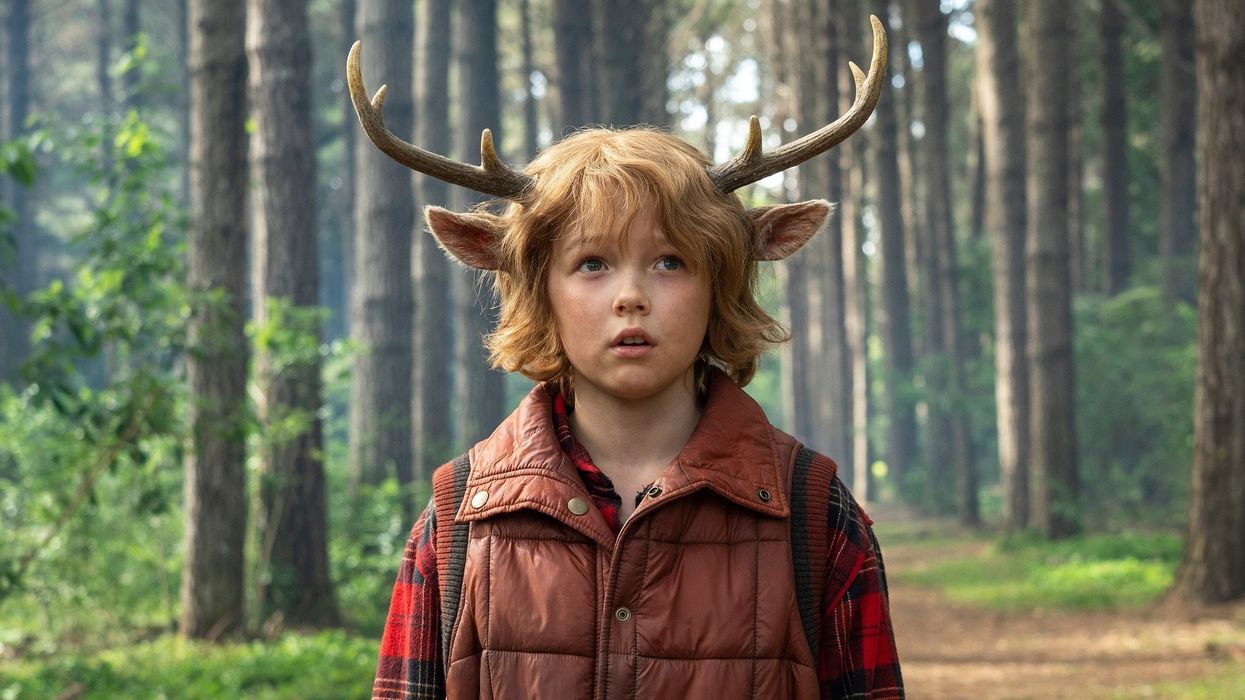Subvert Apocalyptic Tropes like Netflix's 'Sweet Tooth'
There's hope for the future in a post-apocalyptic world.

The rise in popularity of post-apocalyptic stories in recent years has led to a saturation of tropes and themes within the genre. However, the Netflix series Sweet Tooth manages to subvert these tropes in several refreshing and unexpected ways.
With its hopeful tone, complex characters, and emphasis on relationships and nature, Sweet Tooth provides a unique and engaging take on the post-apocalyptic world.
In this article, we will explore how Sweet Tooth breaks away from apocalyptic storytelling tropes of the genre, and examine how these subversions elevate the show into a must-watch for fans of the genre.
Let's dive in.
How Does the TV Show Sweet Tooth Subvert Apocalyptic Tropes?
Sweet Tooth is a Netflix original series based on the DC Comics series of the same name, created by Jeff Lemire. The show is set in a post-apocalyptic world where a mysterious virus has wiped out much of the human population and caused the birth of hybrid children who are part human and part animal.
The story follows Gus (Christian Convery), a young hybrid boy who embarks on a dangerous journey to find his mother with the help of a loner named Jepperd (Nonso Anozie). The show is a unique and refreshing take on the post-apocalyptic genre, with a hopeful tone, complex characters, and an emphasis on relationships and nature.
This is what sets it apart from other stories in a similar genre.
Hopeful tone: Unlike most apocalyptic stories that have a bleak and hopeless tone, Sweet Tooth is surprisingly hopeful. It presents a world where despite the devastation caused by the virus and the emergence of hybrid children, there is still kindness, love, and hope.
The hybrid children: The hybrid children, who are half-human and half-animal, are the central characters of the show. Instead of being portrayed as monsters or abominations, they are shown as innocent and pure beings who are just trying to survive. This subverts the common trope of humans fearing and hating anything different.
Complex characters: The show also subverts the common apocalyptic trope of black-and-white morality. The characters are complex, and their motivations are not always clear-cut. Even the villains have their reasons for doing what they do, which makes them more nuanced and interesting.
Focus on relationships: The show also subverts the trope of survival at all costs. While survival is certainly a major theme, the show also emphasizes the importance of human connections and relationships. The characters form bonds and relationships that are just as important as their survival.
Emphasis on nature: Another way the show subverts apocalyptic tropes is by emphasizing the importance of nature. In most post-apocalyptic stories, nature is portrayed as a dangerous and hostile force. However, in Sweet Tooth, nature is shown as something beautiful and restorative. The characters often find solace and healing in nature, and it plays a significant role in the story.

Summing Up How Sweet Tooth Subverts Apocalyptic Tropes?
Sweet Tooth offers a refreshing and unique take on the post-apocalyptic genre. By subverting traditional tropes and themes, the show manages to provide a hopeful and inspiring story that is both engaging and thought-provoking.
Its complex characters, emphasis on relationships and nature, and nuanced storytelling make it a standout among the many post-apocalyptic stories available today.
It not only provides entertainment, but it also challenges our preconceptions and beliefs about the end of the world and reminds us that even in the bleakest of times, there is still hope to be found.
Let me know what you think in the comments.











